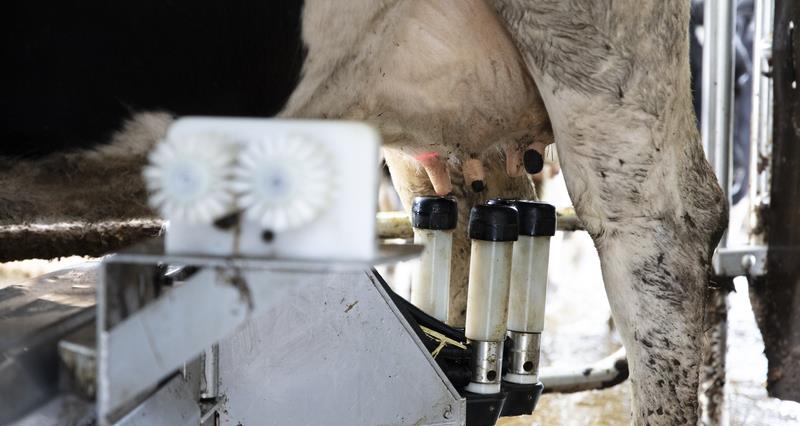We encourage all dairy producer members who need to dispose of waste milk to get in touch with their milk purchaser and check their insurance cover for uncollected milk.
Contingency planning
The EA (Environment Agency) will expect farmers to have a contingency plan in place that accessible to staff and contractors in place for instances when milk cannot be collected from the farm.
Typically this would be expected for scenarios such as extreme weather when the tanker cannot access the farm but may also apply to major disruptions to agriculture and food supply.
You can find government guidance regarding storing and spreading of milk under exceptional circumstances at: GOV.UK | Preventing agricultural pollution in exceptional circumstances
Farmers should consider in advance contingency arrangements for their business using the following hierarchy of options:

Storage is the most favoured option, but is storage is not available farmers should consider disposal of the milk at a permitted anaerobic digestion plants, or as a last resort, spreading the milk on low run-off risk land.
In instances where disposal to sewerage treatment works is a favourable option, members should apply for a temporary consent to discharge trade effluent by contacting their designated water wholesaler.
Doing so will give the companies a better idea of what to expect and allow them to plan accordingly, and will ensure that no criminal offence is committed where the consent is granted.
To reduce the pressure on storage capacity, farmers should consider alternative storage arrangements and actions to minimise slurry production, wherever possible e.g. through using low volume pressure hoses in parlour wash-downs or consider making changes to a production system including moving to straw bed systems to produce solid manure instead.
Safety note: If in the unfortunate instance milk must go into the slurry store, extra care must be taken as mixing milk with slurry can increase the amount of lethal and explosive gases it produces. For example: methane, carbon dioxide, ammonia and hydrogen sulphide.
All slurry stores, including any temporary stores, should comply with the requirements set out in HSE's information sheet on slurry management in order to mitigate the risk from such gases as well as other risks such as drowning.
Redistributing milk into anaerobic digestion or pig units
Some AD (anaerobic digestion) plants or pig units may be suitable and have capacity for surplus milk.
Whilst not a widescale solution, these options may provide opportunities for members to explore on a localised scale where these facilities are nearby.
Members should check their individual contracts and make contact with their milk buyer before proceeding in redistributing any milk.
Spreading milk
If there are no alternative options, spreading milk (and slurry) must be spread ‘thinly and widely’ at an application rate not exceeding 20m3 per hectare*. (N.B. you must use a lower application rate if run-off could enter surface water)
Milk and slurry must only be spread on land with the lowest run-off risk. This is land that:
- has an average slope of less than 3 degrees;
- does not have land drains (other than sealed impermeable pipes);
- in the last 12 months, has not been pipe drained, mole drained, or sub-soiled;
- does not have a shallow soil (<30 cm) above fissured rock;
- has a sufficient depth and suitable type of soil above groundwater to prevent pollution;
- is not within a designated groundwater Source Protection Zone 1;
- is at least 50m from surface water or a conduit leading to a surface water, and at least 50m from springs, wells and boreholes where groundwater is used for human consumption;
- does not have compacted soil or a soil surface which is capped (e.g. only spread where the soil is permeable and has a good structure);
- does not have cracked soil above a land drainage system or groundwater.
*Waste Exemption: You can only spread milk to land at volumes of more than 20 m3 but below 50 m3 of diluted milk per hectare in any 24 hour period if you have a U10 waste exemption.
Waste exemptions exempt the farmer from the need to apply for an Environmental Permit; they are not an exemption from the requirement to adhere to waste regulations since exemptions contain conditions that must be met. All waste exemptions are free to register and are valid for three years.
Contacting the Environment Agency
You must contact the EA incident hotline on 0800 80 70 60 if:
- your slurry or milk store is at risk of overflowing or leaking
- you cannot avoid spreading slurry or milk on agricultural land and there is a risk of runoff, run-through to land drains or leaching
- you are at risk of breaching the legal requirements under:
